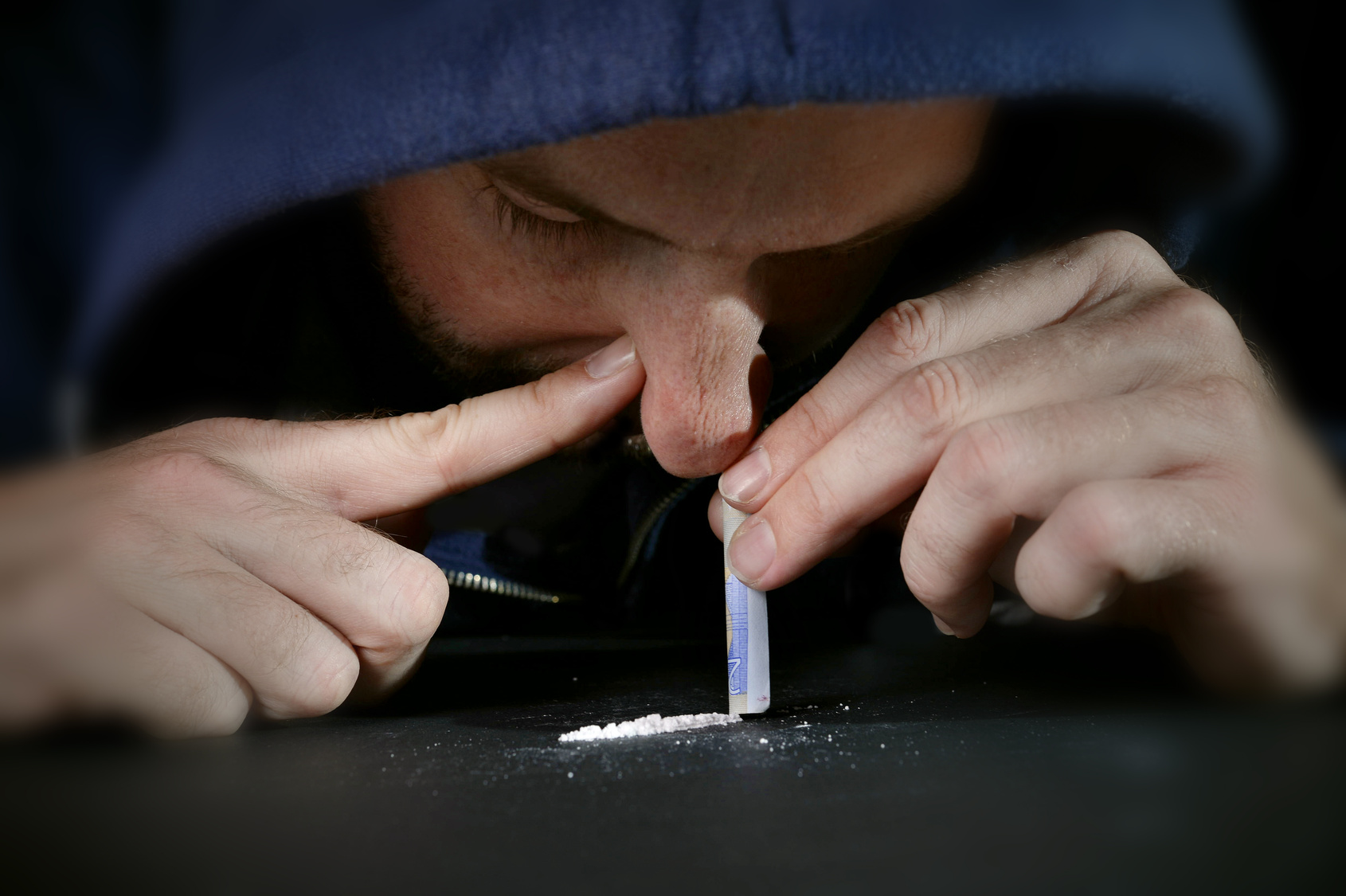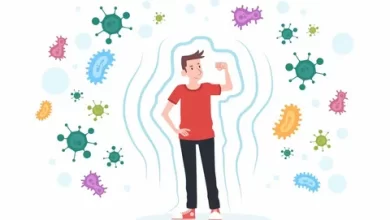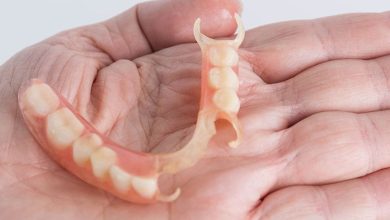EFFECTS OF DRUG ABUSE AND ADDICTION

Drugs are chemicals that affect the body and brain. Different drugs can have different effects. Some effects of drugs include health consequences that are long-lasting and permanent. They can even continue after a person has stopped taking the substance.
There are a few ways a person can take drugs, including injection, inhalation and ingestion. The effects of the drug on the body can depend on how the drug is delivered. For example, the injection of drugs directly into the bloodstream has an immediate impact, while ingestion has a delayed effect. But all misused drugs affect the brain.
They cause large amounts of dopamine, a neurotransmitter that helps regulate our emotions, motivation and feelings of pleasure, to flood the brain and produce a “high.” Eventually, drugs can change how the brain works and interfere with a person’s ability to make choices, leading to intense cravings and compulsive drug use. Over time, this behavior can turn into a substance dependency, or drug addiction.
Today, more than 7 million people suffer from an illicit drug disorder, and one in four deaths results from illicit drug use. In fact, more deaths, illnesses and disabilities are associated with drug abuse than any other preventable health condition.
People suffering from drug and alcohol addiction also have a higher risk of unintentional injuries, accidents and domestic violence incidents.
Table of Contents
Dangers Of Drug Abuse
Affects your brain
The brain is wired to make you want to repeat experiences that make you feel good. The drugs that your brain is addicted to trigger your brains reward system, this means it makes you feel pleasure and that is why people who abuse drugs keep going back for more.
When people use drugs for a long time it can hurt your judgment, decision making, memory and the ability to learn.
Legal problems
The legal consequences of drug abuse will lead to difficulty getting a job. Employees will always do background checks and even if you do have a job this drug use can deeply affect job performance.
A lot of people who abuse drugs have trouble financially. You could find yourself spending money on over the counter drugs rather than paying your rent, a situation like this can spiral and leave a person in substantial financial debt.
Behaviours
A person’s habits and behaviours tend to change significantly due to drug abuse. Some drugs can impair the brains ability to think clearly. A few of the main behavioural changes are increased aggression or irritability.
A person can start to get impatient with others or frustrated within conversation. Personality changes may lead to depression which is a severe symptom and needs to be seen to. There are excellent supports for behaviour changes due to drug abuse out there.
Relationships
When someone loves or cares for a person who abuses drugs, their love can sometimes cloud their judgement. It’s not uncommon for loved ones to try to “help” the person, but in ways that end up enabling the person to continue.
Typical enabling behaviours include taking over responsibilities and feelings of the loved one, working to minimize negative consequences for the person struggling, taking on the blame, and making excuses for poor behaviour.
Does this mean you have to let the person go? Sometimes yes, and sometimes no. You may be able to motivate someone who is abusing drugs to receive help, and you can go through this process together in some ways, but not every person struggling will accept help and go through treatment. Also, if you’re in a relationship with a drug abuser who’s physically harmful to you, you may have no other choice than to leave.
Treatment
For addicts who do agree to treatment, relationships may be salvageable. Getting help with a drug abuse is nothing to be ashamed of. As with any chronic disease, medical interference is necessary for the individual to get back to a healthy lifestyle.
The range of treatment options available today are designed to rehabilitate any level of drug abuse. When it’s time to talk to a loved one about getting help, treatment professionals stress the importance of a non-confrontational environment and one where the individual is also sober.
Showing concern for a loved one, avoiding judgment and talking are the best ways to approach a conversation about getting help.
Tabor Group
What Tabor Group offers is what every drug abuser patient need hope. All aspects of our treatment programs are designed to culminate in patients developing support groups and the coping skills they will need to prevent relapses long into the future. It’s time to stop letting your addiction control your life. The first step is to admit you’re helpless because of your addiction.
For any important information please contact us Email GadgetsNg info@gadgetsng.com
[Button id="1"]




Your passion for your chosen topic radiates in every paragraph. It’s infectious!
This is a topic that’s close to my heart… Many thanks!
Where are your contact details though?
I seriously love your site.. Great colors & theme.
Did you make this web site yourself? Please reply back as I’m planning to create my own personal site and want to know where you got this from or exactly what the theme is called.
Appreciate it!
It’s the best time to make some plans for the future and it
is time to be happy. I have read this post and if I could
I desire to suggest you some interesting things or tips.
Perhaps you can write next articles referring to this article.
I desire to read even more things about it!
Wow, that’s what I was seeking for, what a stuff! existing here at this weblog, thanks admin of this web
page.
It’s in point of fact a nice and helpful piece of info.
I’m happy that you simply shared this useful information with us.
Please stay us up to date like this. Thank
you for sharing.
I savor, lead to I found exactly what I used to be having a look for.
You’ve ended my 4 day lengthy hunt! God Bless you man. Have a great day.
Bye
Hi! I know this is somewhat off topic but I was wondering which blog
platform are you using for this site? I’m getting sick and
tired of WordPress because I’ve had issues with hackers and I’m looking at options for
another platform. I would be awesome if you could point me in the direction of a good platform.
I am extremely inspired with your writing skills as neatly
as with the format to your weblog. Is that this a paid theme or did you customize it your self?
Anyway stay up the nice high quality writing, it’s rare
to peer a great blog like this one today..
I really like it whenever people get together and share thoughts.
Great blog, stick with it!
Thanks for sharing your thoughts. I really appreciate your efforts
and I am waiting for your next write ups thanks once again.
I really like your blog.. very nice colors & theme.
Did you make this website yourself or did you hire someone to do
it for you? Plz answer back as I’m looking to
create my own blog and would like to find out where u got this from.
appreciate it
Thank you for sharing your info. I really appreciate your efforts and I will be waiting for your next post thanks once again.
I know this if off topic but I’m looking into starting my
own blog and was curious what all is required to
get setup? I’m assuming having a blog like yours would cost a
pretty penny? I’m not very web savvy so I’m not 100% sure.
Any tips or advice would be greatly appreciated. Kudos
This design is spectacular! You definitely know
how to keep a reader entertained. Between your wit
and your videos, I was almost moved to start my own blog
(well, almost…HaHa!) Great job. I really loved what you had to say, and more than that, how you presented it.
Too cool!
I simply couldn’t leave your web site before suggesting that I extremely enjoyed the usual info an individual provide in your
visitors? Is gonna be again ceaselessly to inspect new
posts
Thanks very interesting blog!
The other day, while I was at work, my cousin stole my iphone and tested to see if it can survive
a 30 foot drop, just so she can be a youtube sensation. My apple ipad is
now destroyed and she has 83 views. I know
this is totally off topic but I had to share it with someone!
Everyone loves it when folks get together and share thoughts.
Great website, keep it up!
Every weekend i used to visit this site, as i want enjoyment, since this this site conations in fact pleasant funny data too.
This web site really has all of the information and facts I wanted
about this subject and didn’t know who to ask.
Hey! I realize this is kind of off-topic but I needed to ask.
Does managing a well-established blog such as yours require
a lot of work? I’m brand new to blogging however I do write in my journal daily.
I’d like to start a blog so I can share my personal experience and feelings online.
Please let me know if you have any ideas or tips
for brand new aspiring bloggers. Thankyou!
When someone writes an paragraph he/she retains the image of a user in his/her mind that how a
user can understand it. Therefore that’s why this post is perfect.
Thanks!
Thank you, I’ve recently been searching for information about this topic for ages
and yours is the best I’ve came upon so far.
But, what in regards to the conclusion? Are you certain about the source?
There is certainly a lot to learn about this subject. I like all the points you’ve made.
Good blog you’ve got here.. It’s difficult to find quality writing like yours these days.
I truly appreciate individuals like you! Take care!!
I absolutely love your site.. Great colors & theme. Did you build this web site
yourself? Please reply back as I’m trying to create my very
own website and would love to find out where you got this from or just what the theme is called.
Kudos!
It’s going to be finish of mine day, however before ending I am reading this fantastic article to improve
my knowledge.
Every weekend i used to pay a visit this web site, because i wish
for enjoyment, since this this website conations genuinely good funny material
too.
Hey There. I found your blog using msn. This is a very well written article.
I will make sure to bookmark it and come back to read more
of your useful info. Thanks for the post. I will definitely comeback.
Hello! Do you know if they make any plugins to protect against
hackers? I’m kinda paranoid about losing everything I’ve worked
hard on. Any tips?
What’s up i am kavin, its my first occasion to commenting anywhere, when i read this paragraph i thought i could also create comment due to this good
article.
I really like reading a post that can make men and women think.
Also, thank you for permitting me to comment!
Valuable information. Lucky me I discovered your website by accident, and I am stunned why this coincidence didn’t came about in advance!
I bookmarked it.
I absolutely love your blog.. Great colors & theme.
Did you create this amazing site yourself? Please reply back as I’m trying to
create my own personal website and want to learn where you got this from or just
what the theme is named. Thank you!
I every time used to study post in news papers but now as I am a user of net so from now I am
using net for articles or reviews, thanks to web.
Its such as you learn my thoughts! You appear to understand so much about this, such as you wrote the
book in it or something. I think that you simply
can do with a few % to power the message home a bit, but other than that,
this is wonderful blog. A fantastic read. I will
certainly be back.
You need to take part in a contest for one of the greatest blogs online.
I will highly recommend this site!
Thanks for the auspicious writeup. It if truth be told used to be a leisure account it.
Look complicated to far brought agreeable from you! However, how could we be
in contact?
Yesterday, while I was at work, my cousin stole
my iphone and tested to see if it can survive a
30 foot drop, just so she can be a youtube sensation. My apple ipad is now destroyed
and she has 83 views. I know this is completely off topic but I had to share it with someone!
Hi to every one, the contents present at this website are in fact amazing for people knowledge,
well, keep up the nice work fellows.
Does your website have a contact page? I’m having a
tough time locating it but, I’d like to shoot you an e-mail.
I’ve got some ideas for your blog you might be interested in hearing.
Either way, great blog and I look forward to seeing it expand over time.
hey there and thank you for your information –
I have definitely picked up something new from right here.
I did however expertise a few technical points using this web site, as I experienced
to reload the site a lot of times previous to I could get it to load properly.
I had been wondering if your hosting is OK? Not that I’m complaining, but slow loading instances
times will very frequently affect your placement in google and can damage your quality score if advertising
and marketing with Adwords. Anyway I’m adding this RSS to my email and can look out for much more of your respective intriguing content.
Make sure you update this again very soon.
I’m gone to inform my little brother, that he should also go to see this webpage on regular basis to
get updated from newest news.
What’s up everyone, it’s my first pay a visit at this site, and piece of writing is really fruitful for me, keep up posting these posts.
Hurrah, that’s what I was exploring for, what a material!
present here at this webpage, thanks admin of this site.
Pretty nice post. I just stumbled upon your weblog and wanted to say that I have really
enjoyed surfing around your blog posts. After all I will be subscribing to your
rss feed and I hope you write again soon!
I’ve learn some good stuff here. Certainly worth bookmarking for revisiting.
I surprise how a lot effort you set to make this type of magnificent informative web
site.
Hi! Would you mind if I share your blog with my facebook group?
There’s a lot of folks that I think would really
enjoy your content. Please let me know. Thank you
Great post. I was checking continuously this blog and I am impressed!
Extremely helpful information particularly the remaining part :
) I maintain such info much. I was seeking this certain information for a long time.
Thanks and good luck.
I’m really inspired together with your writing abilities as well as with the format to your blog.
Is that this a paid topic or did you customize it your self?
Anyway keep up the excellent quality writing, it’s rare to look a great blog like
this one today..
I have been browsing online more than three hours as of late, yet I never discovered any fascinating article like yours.
It’s beautiful worth sufficient for me. In my view,
if all web owners and bloggers made excellent content as
you probably did, the web might be a lot more helpful
than ever before.
Thanks designed for sharing such a good idea,
post is pleasant, thats why i have read it fully
I’m really enjoying the theme/design of your website.
Do you ever run into any web browser compatibility issues?
A few of my blog audience have complained about my website not operating correctly in Explorer but looks
great in Chrome. Do you have any suggestions to help fix this
issue?
Wow, fantastic blog layout! How long have you been blogging for?
you made blogging look easy. The overall look of your website is great,
as well as the content!
Hey! This is my first comment here so I just wanted to
give a quick shout out and say I genuinely enjoy reading through
your articles. Can you suggest any other blogs/websites/forums that deal with
the same subjects? Thank you so much!
What’s Going down i am new to this, I stumbled upon this I’ve found It absolutely useful and it has aided me out loads.
I am hoping to give a contribution & aid other users like its helped
me. Great job.
Hi there Dear, are you really visiting this web site regularly, if so afterward you will absolutely get fastidious
know-how.
I would like to thank you for the efforts you’ve put in writing
this website. I am hoping to view the same high-grade blog
posts by you in the future as well. In fact, your creative writing abilities has motivated me to get my own, personal blog now 😉
Hi! I simply wish to offer you a big thumbs up for your excellent information you have got right here on this post.
I am coming back to your web site for more
soon.
Nice post. I used to be checking constantly this blog and I am impressed!
Extremely helpful information specifically the ultimate phase :
) I handle such information much. I used to be seeking this particular information for a long time.
Thank you and best of luck.
I was wondering if you ever thought of changing the structure of your website?
Its very well written; I love what youve got to say.
But maybe you could a little more in the way of content
so people could connect with it better. Youve got an awful
lot of text for only having one or 2 images. Maybe you could
space it out better?
Good day! This is my first visit to your blog! We are a group of volunteers and starting a new initiative in a community in the same niche.
Your blog provided us valuable information to work on. You
have done a wonderful job!
There is definately a great deal to learn about this topic.
I love all the points you have made.
Hurrah, that’s what I was searching for, what a data!
existing here at this webpage, thanks admin of this web page.
Excellent post. I was checking continuously this blog and I’m impressed!
Extremely helpful info particularly the last part 🙂 I care for such info
a lot. I was looking for this particular information for a long time.
Thank you and good luck.
Pretty nice post. I just stumbled upon your blog and wished to say that I have really enjoyed
surfing around your blog posts. In any case I will be subscribing to your rss feed and I hope you write again very soon!
Hi! I could have sworn I’ve visited this website before but after
browsing through a few of the articles I realized it’s new to me.
Nonetheless, I’m definitely pleased I found it and I’ll be
bookmarking it and checking back often!
Hi mates, pleasant post and pleasant arguments commented at
this place, I am genuinely enjoying by these.
It’s amazing in support of me to have a site, which is good in support of my experience.
thanks admin
Woah! I’m really enjoying the template/theme of this blog.
It’s simple, yet effective. A lot of times it’s very hard
to get that “perfect balance” between usability and appearance.
I must say you have done a excellent job with this.
Additionally, the blog loads very fast for me on Internet explorer.
Outstanding Blog!
Attractive section of content. I just stumbled upon your website and in accession capital to assert that I acquire in fact
loved account your weblog posts. Anyway I will be subscribing on your feeds or even I fulfillment you get entry to persistently fast.
Great beat ! I wish to apprentice at the same time as you
amend your site, how could i subscribe for a blog site?
The account helped me a appropriate deal. I had been a little bit acquainted of this your broadcast offered vibrant clear
idea
Hey! This is my first visit to your blog! We are a team of volunteers and
starting a new initiative in a community in the same niche.
Your blog provided us useful information to work on. You have done a marvellous job!
Hey! Do you use Twitter? I’d like to follow you if that would be
okay. I’m definitely enjoying your blog and look forward to new updates.
Good write-up. I definitely appreciate this site. Thanks!
I used to be able to find good advice from your blog articles.
If some one desires to be updated with most recent technologies
therefore he must be visit this web site and be up to date every day.
What’s up, its fastidious article concerning media print, we all know media is a great source of facts.
I was curious if you ever considered changing the structure
of your blog? Its very well written; I love what youve got to say.
But maybe you could a little more in the way of content so people could connect
with it better. Youve got an awful lot of text for only having one or 2 pictures.
Maybe you could space it out better?
I’m now not sure the place you’re getting your info, however great topic.
I needs to spend a while learning more or understanding more.
Thank you for magnificent info I was searching
for this info for my mission.
If some one wants to be updated with most up-to-date technologies afterward he must be pay a
visit this website and be up to date all the time.
Hey there! Quick question that’s totally off topic. Do you know how to make your site mobile friendly?
My web site looks weird when browsing from my iphone 4.
I’m trying to find a theme or plugin that might be able to fix this problem.
If you have any recommendations, please share. With thanks!
I really like your blog.. very nice colors
& theme. Did you create this website yourself or did you hire someone
to do it for you? Plz reply as I’m looking to construct my own blog and would like to
know where u got this from. thanks a lot
I needed to thank you for this very good read!! I absolutely loved every little bit of it.
I have you saved as a favorite to check out new stuff you
post…
It’s going to be finish of mine day, but before ending I am
reading this enormous paragraph to increase my experience.
Hi there, I found your site by way of Google even as
searching for a comparable subject, your website came up, it
seems to be great. I’ve bookmarked it in my google bookmarks.
Hello there, just became alert to your blog through
Google, and located that it’s really informative. I am going to be careful for brussels.
I will appreciate should you proceed this in future. A lot of people might be benefited out of your writing.
Cheers!
I don’t even know the way I finished up here, however I
believed this submit used to be great. I don’t realize who you are but definitely you are
going to a famous blogger should you aren’t already. Cheers!
Hey there this is kinda of off topic but I was wondering if
blogs use WYSIWYG editors or if you have to manually
code with HTML. I’m starting a blog soon but have no coding
skills so I wanted to get advice from someone with experience.
Any help would be enormously appreciated!
Hello, I enjoy reading all of your post. I like to write a little comment to
support you.
As the admin of this site is working, no doubt very shortly it will be well-known, due
to its quality contents.
Thanks for sharing your thoughts. I truly appreciate your efforts and I am waiting for
your further write ups thanks once again.
I do not know whether it’s just me or if perhaps everyone else encountering
problems with your site. It seems like some of the text within your content are running off the screen. Can somebody else please comment and let me know if this is happening to them
too? This might be a issue with my browser because I’ve had this happen before.
Kudos
Good blog post. I definitely appreciate this website.
Stick with it!
I loved as much as you will receive carried out right here.
The sketch is tasteful, your authored material stylish.
nonetheless, you command get got an shakiness over that you wish be delivering the following.
unwell unquestionably come further formerly again since exactly the same nearly very often inside case you shield this increase.
I am not sure where you are getting your information, but good
topic. I needs to spend some time learning more or
understanding more. Thanks for magnificent info I was looking
for this info for my mission.
First of all I would like to say great blog!
I had a quick question in which I’d like to ask if you
don’t mind. I was curious to find out how you center yourself and clear your mind
prior to writing. I’ve had a tough time clearing
my thoughts in getting my ideas out there. I truly do take pleasure in writing
however it just seems like the first 10 to 15 minutes are wasted simply just trying to figure out how to begin. Any suggestions or hints?
Many thanks!
Appreciate the recommendation. Let me try it out.
Hi there! I know this is kind of off topic but I was wondering if you knew where I could find a captcha plugin for my
comment form? I’m using the same blog platform as yours and
I’m having difficulty finding one? Thanks a lot!
Does your blog have a contact page? I’m having trouble locating it but, I’d
like to shoot you an email. I’ve got some ideas for your blog you might be
interested in hearing. Either way, great site and I look forward to seeing it expand over time.
Hi, i think that i saw you visited my blog so i came to “return the favor”.I’m trying to find things to enhance my web site!I suppose its ok to use a few of your ideas!!
Hi there it’s me, I am also visiting this web site daily, this site is really pleasant and the users are actually sharing fastidious thoughts.
Hi there i am kavin, its my first time to commenting anywhere, when i
read this paragraph i thought i could also make comment due to this sensible paragraph.
I love it when individuals get together and share views.
Great blog, stick with it!
I have been surfing online more than 4 hours today, yet I never found any interesting article like yours.
It is pretty worth enough for me. In my opinion,
if all webmasters and bloggers made good content as you did, the
internet will be a lot more useful than ever before.
I am regular visitor, how are you everybody? This post posted
at this site is in fact good.
After going over a handful of the blog posts on your web page,
I really appreciate your technique of writing a blog.
I saved it to my bookmark site list and will be checking back in the near future.
Please check out my website as well and tell me what you think.
Pretty great post. I simply stumbled upon your blog and wished to say that I
have truly loved browsing your weblog posts. In any case I will be subscribing in your rss feed and I am hoping you
write again very soon!
I all the time emailed this web site post page to all my associates, as if like to read it next my contacts
will too.
Superb blog you have here but I was wondering if you knew of any community forums
that cover the same topics discussed in this article?
I’d really like to be a part of group where I can get
opinions from other knowledgeable individuals that share
the same interest. If you have any suggestions, please let me know.
Appreciate it!
Hello Dear, are you truly visiting this web site daily, if so after that you will without doubt obtain nice experience.
Hello, I read your blogs regularly. Your writing style is witty, keep it up!
Right here is the right website for everyone who wishes to find out
about this topic. You know a whole lot its almost hard to argue with you (not
that I actually would want to…HaHa). You definitely put a fresh spin on a subject that has been written about
for years. Great stuff, just great!
I was wondering if you ever considered changing the layout of your
blog? Its very well written; I love what youve got to say.
But maybe you could a little more in the way of content so people could connect
with it better. Youve got an awful lot of text for only having one or 2 pictures.
Maybe you could space it out better?
Wow, amazing blog structure! How lengthy have you been blogging for?
you made blogging look easy. The overall glance of your site is excellent, let alone
the content material!
india pharmacy http://indiaph24.store/# п»їlegitimate online pharmacies india
top 10 pharmacies in india